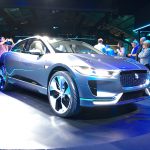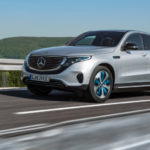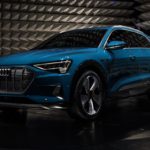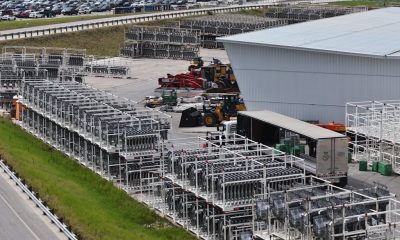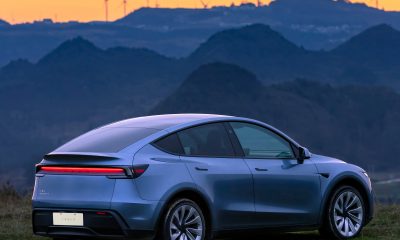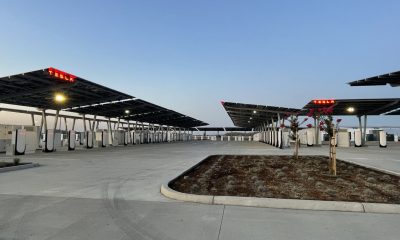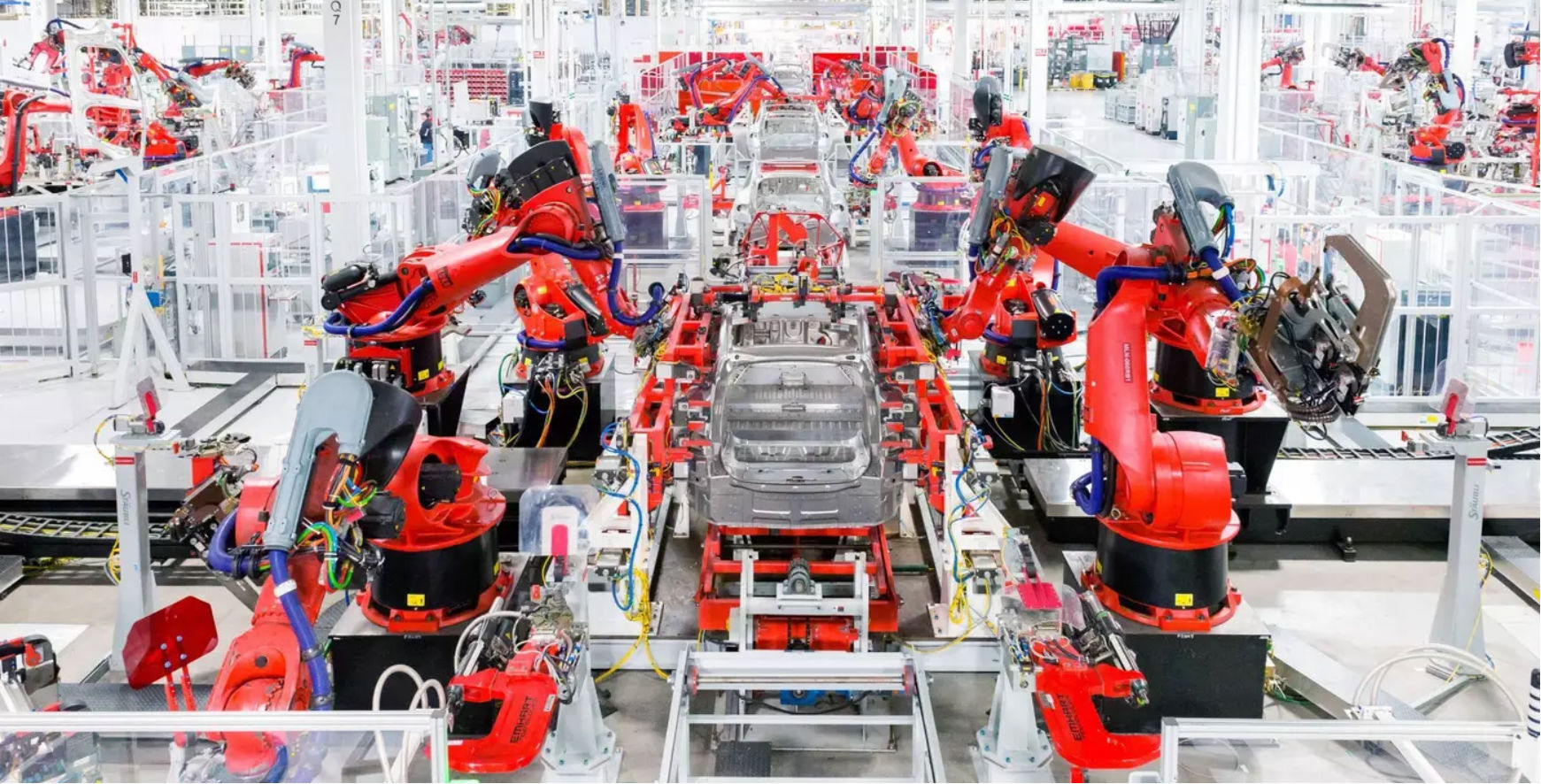

Investor's Corner
Tesla’s 3rd-largest shareholder discusses legacy auto’s ‘Kodak moment’
Amidst Tesla’s continuous rise, its disruption of the car industry is becoming more prevalent. This point was reiterated recently by a major Tesla shareholder, who noted that legacy automakers, with their decades of experience, might be facing their very own “Kodak moment.”
In a recent statement to Morningstar UK, Baillie Gifford manager Iain McCombie remarked that Tesla’s immense growth and potential remains remarkable. McCombie noted that despite short-term noise about Model 3 production, volume is beginning to come through, as evidenced by the company’s pleasantly surprising third-quarter results. The Baillie Gifford executive added that Tesla had already surpassed Daimler’s car sales in the US — a feat that seemed impossible just a few years ago.
“Now, Daimler’s been in the market for 100-plus years and here’s this upstart and they’re outselling them in the US. If you’d said that a few years ago, you’d probably have been locked up, but that’s happening,” he said.
While McCombie admitted that Baillie Gifford might be wrong about its optimistic outlook on Tesla, the finance veteran stated that at this point, it is legacy automakers that are currently feeling the pressure. With the success of Tesla and the apparent strong demand for electric vehicles, veteran carmakers are at risk of losing a core part of their business — the internal combustion engine. McCombie noted that this is reminiscent of what Kodak faced during the advent of the digital camera.
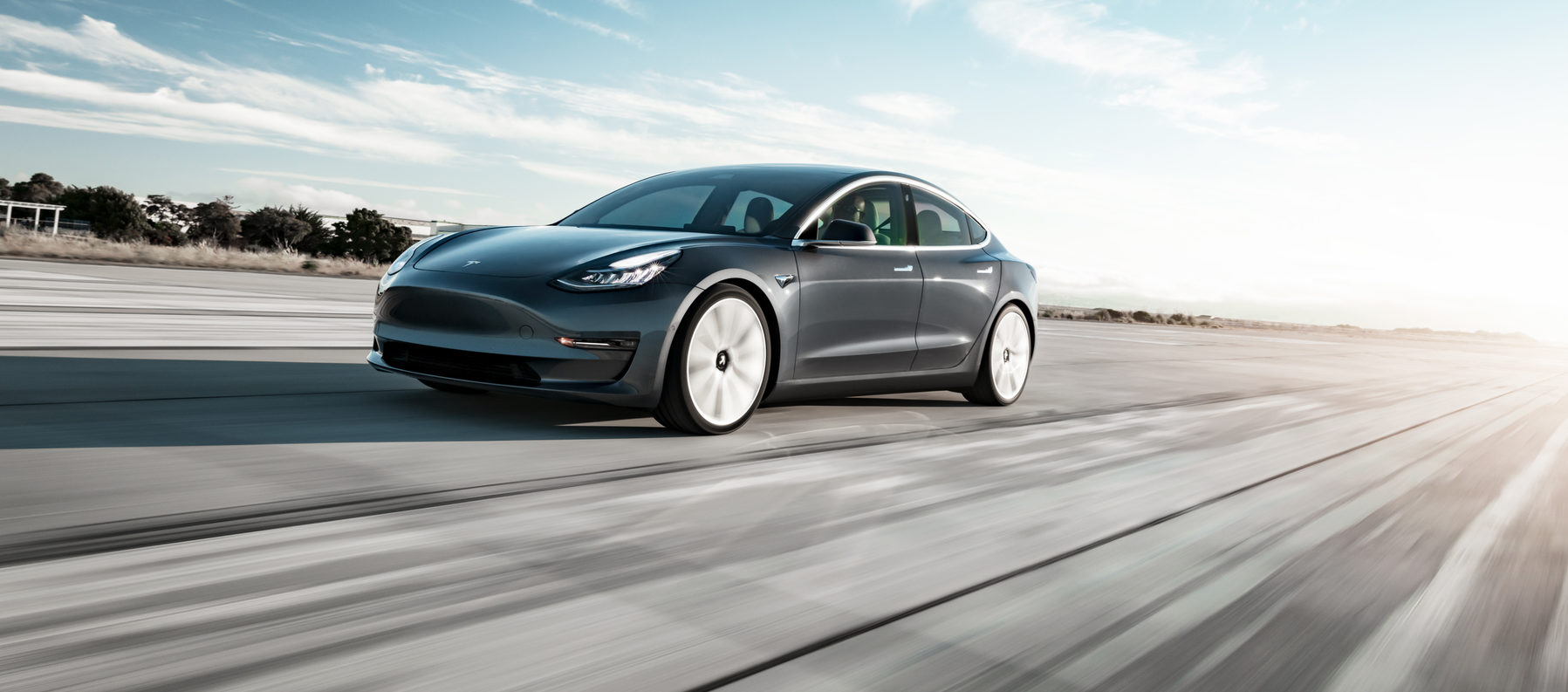
“They spent hundreds of years building up their know-how in industrial combustion engines, and they do a great job with that, but what happens if all of us are suddenly saying ‘oh, I want an electric car’? Suddenly, that know-how is useless. What happened with Kodak is they actually discovered the digital camera, but they buried it because it was too frightening for them. They thought it would kill their film business. But the fact that they didn’t innovate killed Kodak,” he said.
Faced with their very own “Kodak moment,” the Baillie Gifford manager stated that veteran carmakers, at least for now, remain centered on their legacy products. Amidst a market that is changing its preference, though, traditional auto is running the risk of being pushed out during the transition.
“Maybe they are launching electric vehicles, but the bulk of their sales are still coming from legacy products. They’ve built wonderful businesses for themselves, but what happens when the business is changing? That’s why your Tesla is exciting, because they don’t have those legacy issues,” McCombie said.
Baillie Gifford is among Tesla’s largest shareholders, third only to Elon Musk and T. Rowe Price. As of September, Baillie Gifford held a 7.8% stake at the electric car maker.
The absence of compelling electric vehicles from Tesla’s competitors was a key driver for some skeptics when they changed their stance on the company. Ahead of Tesla’s third-quarter earnings call, for one, Andrew Left of Citron Research, one of the electric car maker’s most vocal critics, turned bullish on the company, citing the dominance of the Model 3 in the US passenger car market. Left also noted that there is no “Tesla Killer” coming from rival automakers.
- The Jaguar I-PACE.
- The new Mercedes-Benz EQC – the first Mercedes-Benz under the product and technology brand EQ. With its seamless, clear design, the EQC is a pioneer for an avant-garde electric look with trailblazing design details and colour highlights typical of the brand both inside and out. [Credit: Mercedes-Benz]
- The Audi e-tron. (Credit: Audi)
Brad Cornell, a hedge fund manager who believes that Tesla is overvalued, recently admitted that he had overestimated the company’s competition as well. Cornell admitted that in his past analyses and forecasts, he did not expect Tesla’s competition to roll out electric vehicles in such a slow manner. Apart from this, Cornell noted that legacy auto’s entries into the zero-emissions market have been largely uninspired. As such, vehicles like Teslas, which are green, attractive, and powerful, are becoming the EVs of choice for customers looking to buy an electric car.
“One thing I did not evaluate accurately when I began constructing valuation models for Tesla in early 2014 was how slow the competition would be to produce electric cars that people would want to drive. Tesla competitors, to the extent that any appeared, seemed to be saying that the point of an electric car was to be green and efficient, not sexy or exciting. Only Tesla had the design, the pizzazz, and the performance to make driving special and not a chore.
“My mistake in 2014 was thinking that competition for Tesla was just around the corner. Now, at the end of 2018, it is still just around the corner. Although Jaguar has been promising the I-PACE for some time, my visits to dealers have been rewarded only with promises. The same is true for the Porsche Taycan. There is not a meaningful Tesla competitor available today or in the near future,” Cornell said.
Tesla, for its part, continues to move forward. In Elon Musk’s recent interview with Kara Swisher at the Recode Decode podcast, the Tesla CEO stated that Tesla would be cash-flow positive in all quarters moving forward. Musk was also optimistic about Model 3 production, stating that Tesla is currently capable of producing 6,000-6,500 units of the electric sedan per week, though it would require employees to do a lot of overtime.
Investor's Corner
Two Tesla bulls share differing insights on Elon Musk, the Board, and politics
Two noted Tesla bulls have shared differing views on the recent activities of CEO Elon Musk and the company’s leadership.

Two noted Tesla (NASDAQ:TSLA) bulls have shared differing views on the recent activities of CEO Elon Musk and the company’s leadership.
While Wedbush analyst Dan Ives called on Tesla’s board to take concrete steps to ensure Musk remains focused on the EV maker, longtime Tesla supporter Cathie Wood of Ark Invest reaffirmed her confidence in the CEO and the company’s leadership.
Ives warns of distraction risk amid crucial growth phase
In a recent note, Ives stated that Tesla is at a critical point in its history, as the company is transitioning from an EV maker towards an entity that is more focused on autonomous driving and robotics. He then noted that the Board of Directors should “act now” and establish formal boundaries around Musk’s political activities, which could be a headwind on TSLA stock.
Ives laid out a three-point plan that he believes could ensure that the electric vehicle maker is led with proper leadership until the end of the decade. First off, the analyst noted that a new “incentive-driven pay package for Musk as CEO that increases his ownership of Tesla up to ~25% voting power” is necessary. He also stated that the Board should establish clear guidelines for how much time Musk must devote to Tesla operations in order to receive his compensation, and a dedicated oversight committee must be formed to monitor the CEO’s political activities.
Ives, however, highlighted that Tesla should move forward with Musk at its helm. “We urge the Board to act now and move the Tesla story forward with Musk as CEO,” he wrote, reiterating its Outperform rating on Tesla stock and $500 per share price target.
Tesla CEO Elon Musk has responded to Ives’ suggestions with a brief comment on X. “Shut up, Dan,” Musk wrote.
Cathie Wood reiterates trust in Musk and Tesla board
Meanwhile, Ark Investment Management founder Cathie Wood expressed little concern over Musk’s latest controversies. In an interview with Bloomberg Television, Wood said, “We do trust the board and the board’s instincts here and we stay out of politics.” She also noted that Ark has navigated Musk-related headlines since it first invested in Tesla.
Wood also pointed to Musk’s recent move to oversee Tesla’s sales operations in the U.S. and Europe as evidence of his renewed focus in the electric vehicle maker. “When he puts his mind on something, he usually gets the job done,” she said. “So I think he’s much less distracted now than he was, let’s say, in the White House 24/7,” she said.
TSLA stock is down roughly 25% year-to-date but has gained about 19% over the past 12 months, as noted in a StocksTwits report.
Investor's Corner
Cantor Fitzgerald maintains Tesla (TSLA) ‘Overweight’ rating amid Q2 2025 deliveries
Cantor Fitzgerald is holding firm on its bullish stance for the electric vehicle maker.

Cantor Fitzgerald is holding firm on its bullish stance for Tesla (NASDAQ: TSLA), reiterating its “Overweight” rating and $355 price target amidst the company’s release of its Q2 2025 vehicle delivery and production report.
Tesla delivered 384,122 vehicles in Q2 2025, falling below last year’s Q2 figure of 443,956 units. Despite softer demand in some countries in Europe and ongoing controversies surrounding CEO Elon Musk, the firm maintained its view that Tesla is a long-term growth story in the EV sector.
Tesla’s Q2 results
Among the 384,122 vehicles that Tesla delivered in the second quarter, 373,728 were Model 3 and Model Y. The remaining 10,394 units were attributed to the Model S, Model X, and Cybertruck. Production was largely flat year-over-year at 410,244 units.
In the energy division, Tesla deployed 9.6 GWh of energy storage in Q2, which was above last year’s 9.4 GWh. Overall, Tesla continues to hold a strong position with $95.7 billion in trailing twelve-month revenue and a 17.7% gross margin, as noted in a report from Investing.com.
Tesla’s stock is still volatile
Tesla’s market cap fell to $941 billion on Monday amid volatility that was likely caused in no small part by CEO Elon Musk’s political posts on X over the weekend. Musk has announced that he is forming the America Party to serve as a third option for voters in the United States, a decision that has earned the ire of U.S. President Donald Trump.
Despite Musk’s controversial nature, some analysts remain bullish on TSLA stock. Apart from Cantor Fitzgerald, Canaccord Genuity also reiterated its “Buy” rating on Tesla shares, with the firm highlighting the company’s positive Q2 vehicle deliveries, which exceeded its expectations by 24,000 units. Cannacord also noted that Tesla remains strong in several markets despite its year-over-year decline in deliveries.
Elon Musk
Tesla analyst issues stern warning to investors: forget Trump-Musk feud

A Tesla analyst today said that investors should not lose sight of what is truly important in the grand scheme of being a shareholder, and that any near-term drama between CEO Elon Musk and U.S. President Donald Trump should not outshine the progress made by the company.
Gene Munster of Deepwater Management said that Tesla’s progress in autonomy is a much larger influence and a significantly bigger part of the company’s story than any disagreement between political policies.
Munster appeared on CNBC‘s “Closing Bell” yesterday to reiterate this point:
“One thing that is critical for Tesla investors to remember is that what’s going on with the business, with autonomy, the progress that they’re making, albeit early, is much bigger than any feud that is going to happen week-to-week between the President and Elon. So, I understand the reaction, but ultimately, I think that cooler heads will prevail. If they don’t, autonomy is still coming, one way or the other.”
BREAKING: GENE MUNSTER SAYS — $TSLA AUTONOMY IS “MUCH BIGGER” THAN ANY FEUD 👀
He says robotaxis are coming regardless ! pic.twitter.com/ytpPcwUTFy
— TheSonOfWalkley (@TheSonOfWalkley) July 2, 2025
This is a point that other analysts like Dan Ives of Wedbush and Cathie Wood of ARK Invest also made yesterday.
On two occasions over the past month, Musk and President Trump have gotten involved in a very public disagreement over the “Big Beautiful Bill,” which officially passed through the Senate yesterday and is making its way to the House of Representatives.
Musk is upset with the spending in the bill, while President Trump continues to reiterate that the Tesla CEO is only frustrated with the removal of an “EV mandate,” which does not exist federally, nor is it something Musk has expressed any frustration with.
In fact, Musk has pushed back against keeping federal subsidies for EVs, as long as gas and oil subsidies are also removed.
Nevertheless, Ives and Wood both said yesterday that they believe the political hardship between Musk and President Trump will pass because both realize the world is a better place with them on the same team.
Munster’s perspective is that, even though Musk’s feud with President Trump could apply near-term pressure to the stock, the company’s progress in autonomy is an indication that, in the long term, Tesla is set up to succeed.
Tesla launched its Robotaxi platform in Austin on June 22 and is expanding access to more members of the public. Austin residents are now reporting that they have been invited to join the program.
-

 Elon Musk1 week ago
Elon Musk1 week agoTesla investors will be shocked by Jim Cramer’s latest assessment
-

 News2 weeks ago
News2 weeks agoTesla Robotaxi’s biggest challenge seems to be this one thing
-

 Elon Musk1 day ago
Elon Musk1 day agoElon Musk confirms Grok 4 launch on July 9 with livestream event
-

 News2 weeks ago
News2 weeks agoWatch the first true Tesla Robotaxi intervention by safety monitor
-

 News5 days ago
News5 days agoTesla Model 3 ranks as the safest new car in Europe for 2025, per Euro NCAP tests
-

 Elon Musk2 weeks ago
Elon Musk2 weeks agoA Tesla just delivered itself to a customer autonomously, Elon Musk confirms
-

 Elon Musk2 weeks ago
Elon Musk2 weeks agoxAI welcomes Memphis pollution results, environmental groups push back
-

 Elon Musk2 weeks ago
Elon Musk2 weeks agoElon Musk confirms Tesla Optimus V3 already uses Grok voice AI

